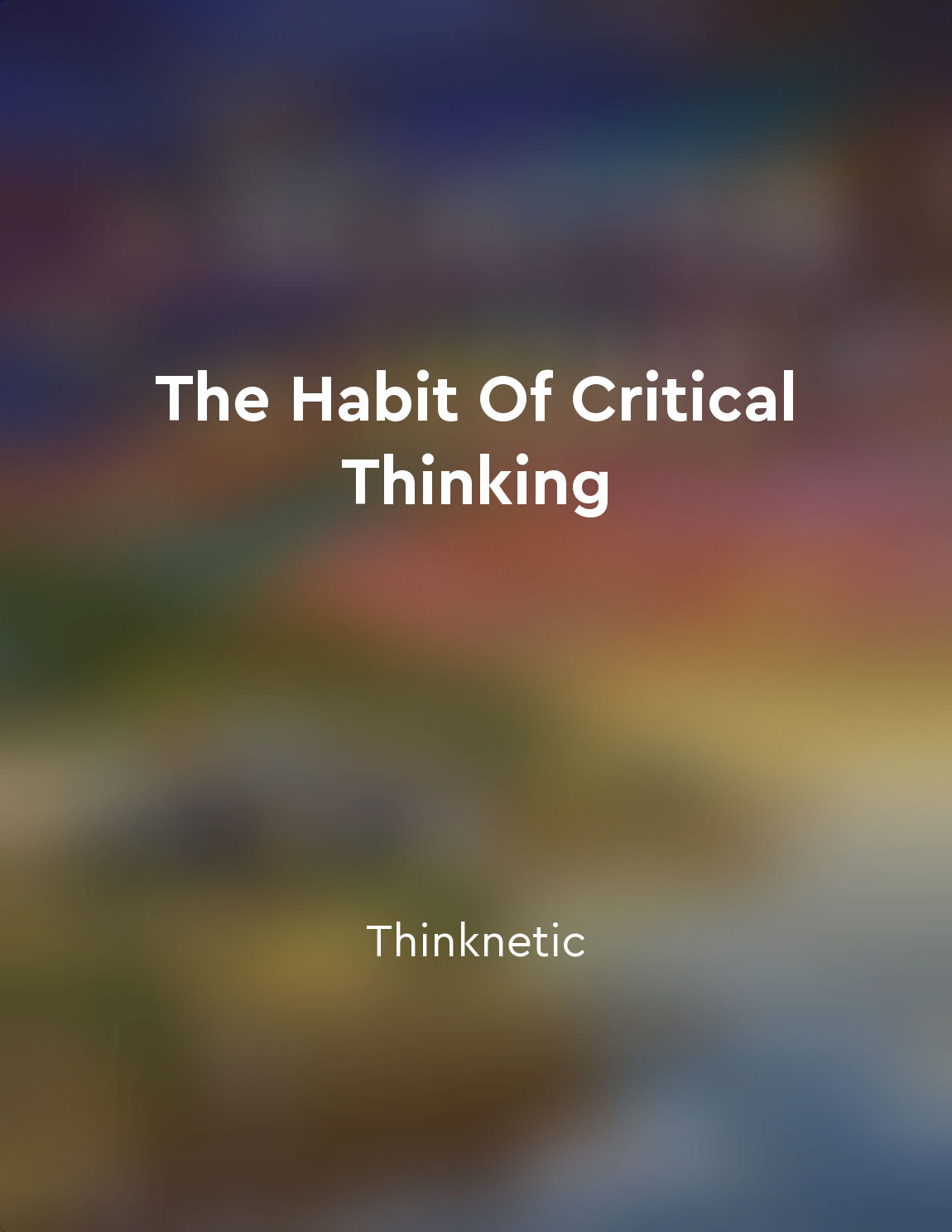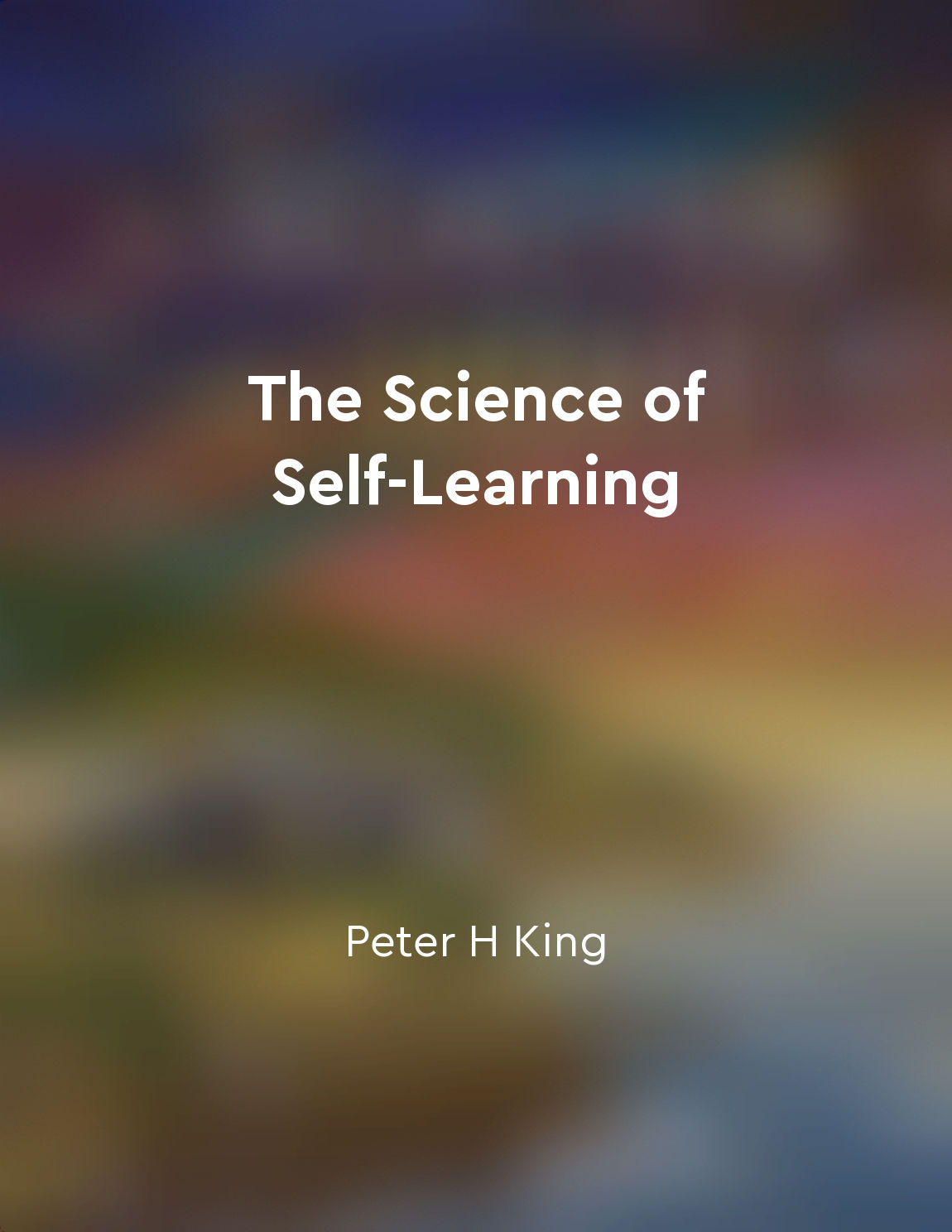Reflection is key in PBL to enhance learning from "summary" of The Power of Problem-based Learning by Barbara J. Duch,Susan E. Groh,Deborah E. Allen
Reflection plays a crucial role in problem-based learning (PBL) by providing students with the opportunity to engage in metacognitive processes that enhance their learning. When students reflect on their experiences throughout a PBL activity, they are able to deepen their understanding of the content and develop critical thinking skills. By pausing to consider what they have learned, how they have learned it, and how they can apply it in the future, students are able to make connections that strengthen their overall learning experience. Through reflection, students are able to identify gaps in their understanding, recognize areas where they need to seek additional information, and make connections between new knowledge and their existing knowledge base. This process of self-assessment allows students to take ownership of their learning and actively participate in the construction of knowledge. By encouraging students to reflect on their learning processes, educators can help them develop a deeper understanding of the material and foster a sense of intellectual curiosity. Reflection also helps students develop important metacognitive skills, such as self-regulation, goal setting, and self-evaluation. By reflecting on their learning experiences, students can identify their strengths and weaknesses, set goals for improvement, and monitor their progress over time. This process of self-regulation enables students to take control of their learning and develop the skills necessary to succeed in both academic and real-world settings. Furthermore, reflection can help students develop a deeper appreciation for the complexity of real-world problems and the interdisciplinary nature of knowledge. By encouraging students to reflect on the connections between different disciplines, educators can help them see the relevance of their learning and develop a more holistic understanding of the world around them. This interdisciplinary approach to learning can help students develop the critical thinking skills necessary to solve complex problems and make informed decisions in their personal and professional lives.- Reflection is a key component of PBL that enhances learning by promoting metacognitive processes, encouraging self-assessment, developing metacognitive skills, and fostering interdisciplinary understanding. By incorporating reflection into their teaching practices, educators can help students develop the skills and knowledge necessary to succeed in the 21st century.
Similar Posts
Customize learning strategies based on personal strengths and weaknesses
When embarking on a journey of ultralearning, it is essential to recognize that one size does not fit all when it comes to lear...
Developing emotional intelligence for effective communication and relationships
To be an effective communicator and build strong relationships, one must develop emotional intelligence. Emotional intelligence...

Critical thinking is essential
Critical thinking is not just a nice-to-have skill in today's complex world; it is an absolute necessity. Without the ability t...
Embrace creative thinking and innovation
To truly embrace creative thinking and innovation, it is important to understand that creativity is not just about coming up wi...
Doubt everything
It is necessary, once in the course of our life, to doubt, as far as possible, of all things. We should not believe anything wi...
Stay flexible and adaptable in the face of uncertainty
In today's fast-paced and unpredictable business environment, the ability to stay flexible and adaptable in the face of uncerta...

Building a network of mentors and peers for guidance and support
When embarking on the journey of self-learning, it is paramount to recognize the significance of seeking guidance and support f...
Drawing diagrams can aid in problemsolving
When faced with a complex mathematical problem, drawing diagrams can be a powerful tool to aid in problem-solving. Diagrams hel...

Pay attention to details
Paying attention to details is a crucial aspect of developing critical thinking skills. It involves being meticulous and thorou...

